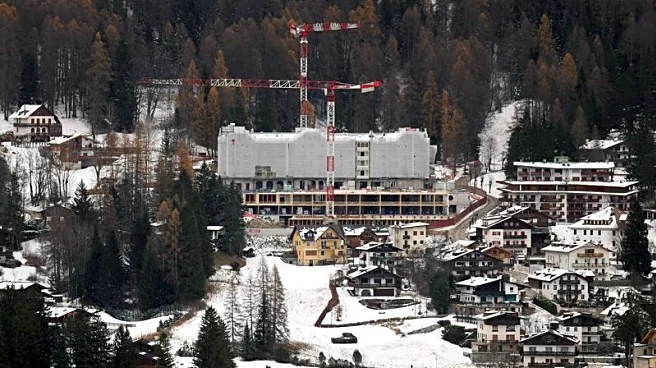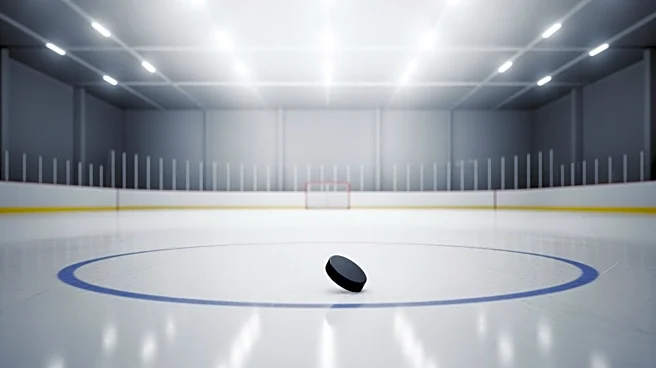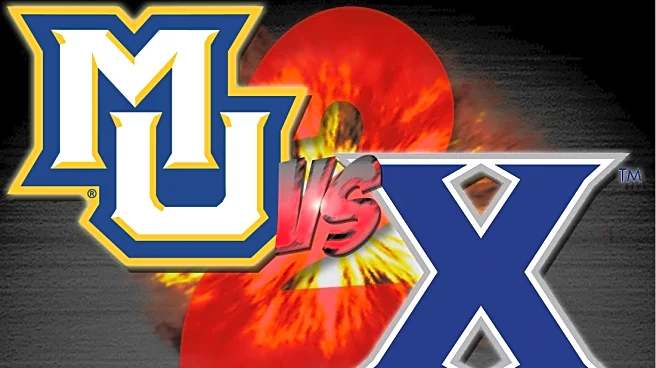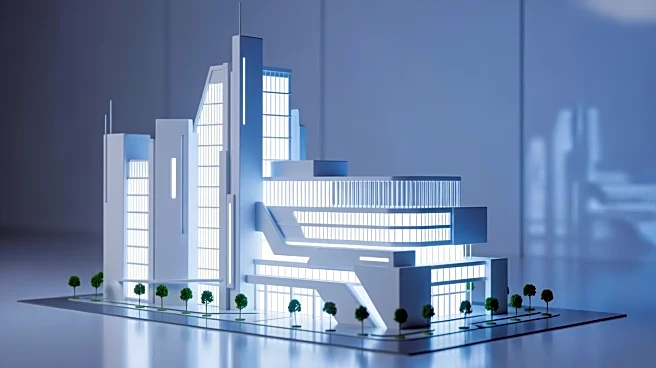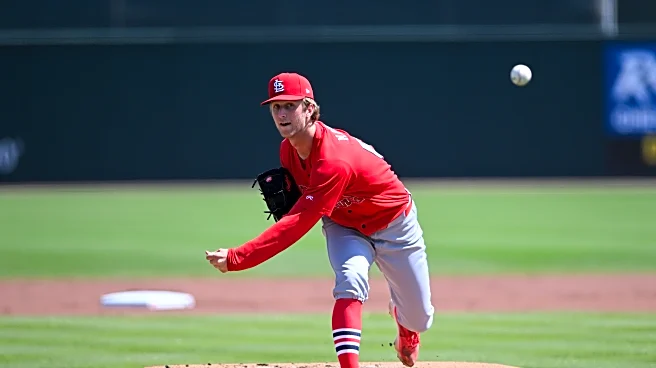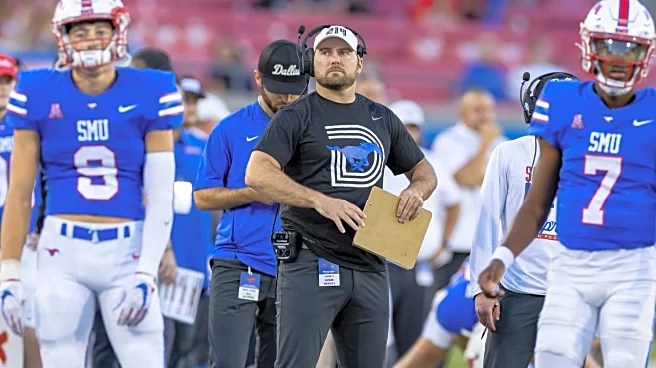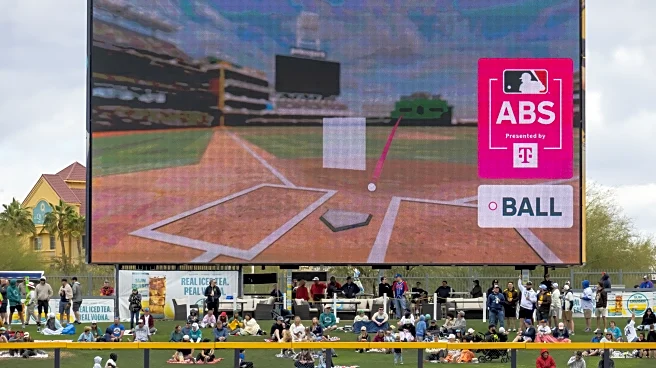By Elvira Pollina and Sara Rossi
MILAN/CORTINA D'AMPEZZO, Italy (Reuters) -Local organisers have been forced to cap the number of tickets on sale for Winter Olympic events in Cortina d'Ampezzo in February because of concerns over transport congestion, heightened by delays in building a new cable car to take fans up the mountain.
The issues facing the Apollonio-Socrepes gondola are the most pressing sign of the transport challenges that Italy faces as it stages a Games co-hosted by Cortina, and the city
of Milan, with events spread across other parts of northern Italy.
With the Games little over two months away, work is well behind schedule on building the cable car link to carry thousands of spectators from the town centre to the Tofane Alpine Skiing centre where the women's races are being held.
CAP ON TICKET NUMBERS
In the town itself, Cortina will host curling, as well as bobsleigh, luge and skeleton in the new sliding centre.
Massimo Bortoluzzi, provincial transport councillor, said uncertainty over the cable car project and delays in preparing the collection points for spectators heading to the events have prompted a preliminary 15% cut in initial spectator estimates of 200,000.
"We need to draw a line, we've come too close to the deadline and now risk problems finding drivers and shuttles," Bortoluzzi told Reuters.
Organisers have temporarily restricted the number of tickets available for events in Cortina to match the transport system's current capacity and to avoid excessive traffic, a spokesperson for the Milano Cortina 2026 Foundation, the local organising committee said, without providing precise figures.
TRAFFIC TO BE LIMITED DURING GAMES
Set in the Dolomites, Cortina is one of Italy's best known winter resorts and staged the Games in 1956, but it has no rail station and access by the only main road into town can often be slow at peak times. Cars remain the main way to get around a town that is home to only around 5,500 permanent residents.
Special measures are being introduced to try to ease congestion during the Olympics which run from February 6 to February 22.
Only vehicles with permits will be allowed to access parts of the town - these are being made available to local households, second-home owners and people providing services during the Games.
Fans with tickets for Olympic events will have to leave their cars at designated areas and take shuttle buses to reach the events.
CABLE CAR FACES PRESSING DEADLINE
The cable car should help to ease overcrowding by whisking visitors directly from an elementary school in the town to the slopes.
The project, known as a gondola ropeway, involves 10 pylons and three stations – valley, intermediate and summit – with 50 cabins seating 10 people each, able to carry 2,400 passengers an hour.
Bogged down by a lengthy approval process, the contract was awarded to a company only in July, but the project also faced a legal challenge from a group of local residents who sought to block it in court.
In an area prone to landslides, a crack in the ground further complicated work.
Simico, the state-backed agency in charge of building the Games infrastructure, has repeatedly said it will deliver the gondola on time, pointing to what happened with the sliding centre where worries over delays were overcome.
In an interview with state broadcaster RAI on November 22, Simico special commissioner Massimo Saldini said the bulk of the project will be ready by the end of December, with final testing to follow in January.
Franco Sovilla, who owns a historic bookshop in Cortina, is looking ahead to the potential long-term benefits.
"Right now there’s only one road to reach the Tofane slopes, and without this link, traffic would be heavy. It will also help ease congestion after the Games," he said.
(Reporting by Elvira Pollina, Sara Rossi, additional reporting by Claudia Greco, editing by Keith Weir and Conor Humphries)
